Parliament and the Palace: Has politicians’ ‘no-comment’ approach to the royals had its day?
18 minutes ago
 Laura KuenssbergPresenter, Sunday with Laura Kuenssberg
Laura KuenssbergPresenter, Sunday with Laura Kuenssberg

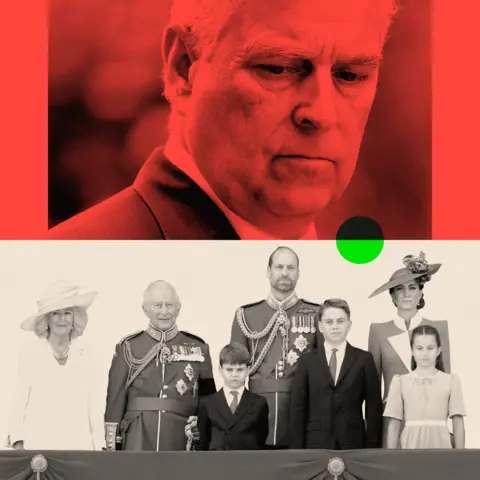 BBC
BBC“You might think this is about Andrew,” a senior Whitehall figure wonders out loud.
“But put this in your diary as a pivot point in the relationship between Palace and Parliament.”
Will this royal mess usher in a new era? And despite their conventional refusal to comment, could politicians become quicker to point out the monarchy’s flaws, and more willing to speak out?

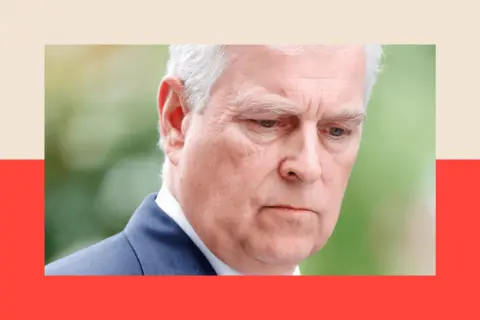 Getty Images
Getty Images“Nice try!” was the then-Prime Minister Boris Johnson’s response when he was asked by reporters about the original, disastrous interview with the man who was until 48 hours ago afforded his title Prince Andrew, back in 2019.
That just about sums up the response – for years. Ministers would rather do almost anything than speak out on the saga.
“It was more than being allergic – you were going into a no-win scenario,” a former No 10 official recalls. “You either incur the wrath of the Palace, or you look like you are defending the indefensible.”
The avoid-it-if-you-possibly-can tactic was not just associated with the long-running Andrew saga. For many years, the broad convention has been that senior politicians who want to get near government keep their mouths diplomatically shut about the royals, aside from bland praise, or supportive quiet murmuring.
And the convention worked both ways – with the Royal Family never talking about political matters in public. Polite nods in both directions were the order of the day. It has been deliberate – “don’t upset the Queen, don’t upset the King.”
In our political system, it’s hard to think of other areas where there is the same kind of unwritten rule. The former No 10 source says the prime minister is rarely told to not do something, but when it comes to the royals, aides and officials are “preprogrammed” to advise: do not get involved.

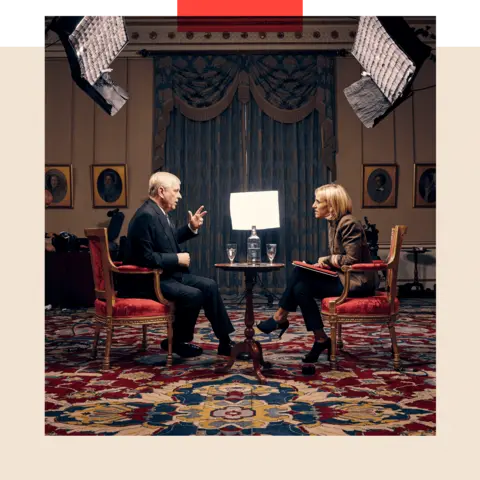
There have, of course, always been notable exceptions.
Former Labour leader Jeremy Corbyn is a republican, and questioned whether the royal family should be scaled back.
Boris Johnson infuriated the Palace when he closed down Parliament for weeks, suspected of seeking to stop MPs trying to thwart his ambition to take the UK out of the EU. For the Palace, that nakedly political action was deeply uncomfortable.
David Cameron was rapped on the knuckles when he claimed the late queen “purred” down the phone line when he told her the result of the Scottish referendum.
The leader of the Greens, Zack Polanski, tells me they are a republican party, and there are plenty of proud republicans peppered through Labour, the SNP, and Lib Dem ranks, although those aren’t the parties’ official positions.
The truth is, for those in, or close to power, the monarchy is not just a fact of political life, but part of it. The reason? Don’t forget, the crown is depicted on the headed paper of government documents, on the front of our laws, and stamped on the side of ministers’ red boxes. The government is his or her majesty’s administration.
Ministers are appointed by the Crown. And that’s not just abstract. Senior politicians who attend the Privy Council will see the monarch on a regular basis. The prime minister famously has an “audience”, a one-to-one chat, with the King every week.
So the government and Palace are fundamentally connected through process and personalities. Insiders underline these real relationships are another reason for not taking potshots.

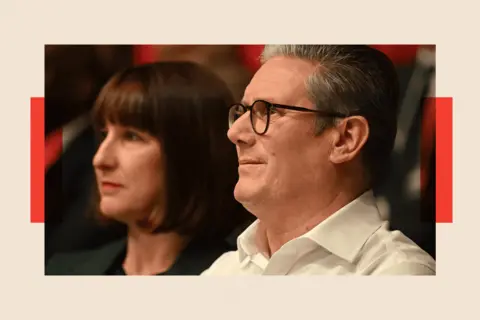 Getty Images
Getty ImagesIn the last few weeks, however, there is no question there’s been a bolder appetite in Parliament. Revelation after revelation about Andrew’s behaviour has prompted an unusual level of chatter. We’ve seen MPs trying to force a change in the law for him to lose his titles.
The Lib Dems pondered using their allotted time in the Commons to debate cranking up the pressure. And the powerful Public Accounts Committee has been demanding answers over Andrew paying only a peppercorn rent at his home in Windsor. Even though his big brother is calling in the removal vans, the PAC is still waiting for responses to its queries. Depending on the responses it gets, they may still launch a bigger investigation into the financial trail.
And while it still seems unlikely, the committee’s MPs could even summon Andrew to give evidence to them.
American politicians have threatened to do the same – and UK Trade Minister Chris Bryant said on Friday morning he should attend if asked to do so, as any “decent person” would.
Even a few weeks ago, it’s hard to imagine those kinds of comments escaping the mouth of any member of a British government.
The nature of the allegations – and arguably the Palace’s hesitation to take bolder action over a long period of time – has changed the mood, reflecting, as politicians often do, the public’s attitude.
“The truth is we are very supportive of the Royal Family and the King,” one opposition source said. “But lots of people we spoke to knocking on doors were so unhappy, so we felt it needed to get sorted.”

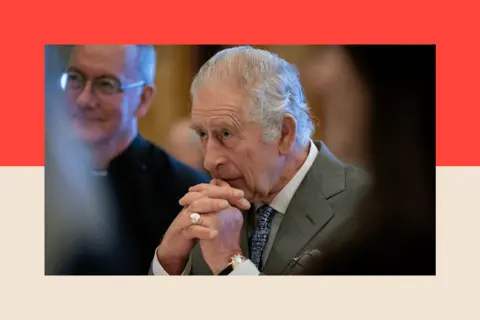 Getty Images
Getty ImagesUnease about royal behaviour had spread way beyond regular critics of the monarchy – Robert Jenrick and Sir Ed Davey bringing it up “sent shockwaves”.
And sources suggest messages were being quietly conveyed from government too. One said: “‘people […] politely saying to the Palace this is not going away and this is difficult – the government saying ‘eek, this isn’t going away’ – will have been part of it.”
It is also the case that the royal furore has been incredibly convenient for the government this week – grabbing headlines while Chancellor Rachel Reeves’ behaviour was being questioned.
During royal scandals, “you breathe a sigh of relief as you guys – the media – go crackers over something else,” a former No 10 official told me.
By her own admission, Reeves broke the rules. She didn’t get her story straight at the start. Had the King made his decision a few days earlier or a few days later, the chancellor’s embarrassment might have been building into a bigger scandal.

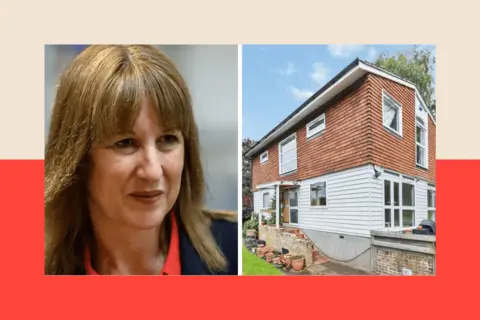 PA Wire/ Rightmove
PA Wire/ RightmoveIt’d be wrong to suggest it was politicians who sent Andrew packing. The King was very unusually heckled. There have been years of unease over Andrew’s behaviour. Allegation after allegation.
Several weeks ago Virginia Giuffre’s family went on my show and said Lord Mandelson should never have been the UK ambassador to the US.
But the role of Parliament and politicians did matter, a source says. Another Whitehall insider tells me it started in Parliament – and the Palace “would have been aware that it was becoming a bigger issue” there.

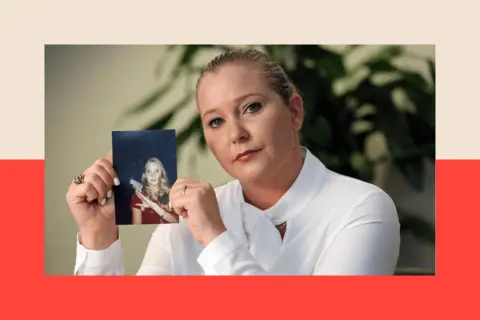 Tribune News Service via Getty Images
Tribune News Service via Getty ImagesWhile technically, of course, the monarch is the ultimate boss, Parliament writes the cheques, through what’s known as the Sovereign Grant, and has the power to scrutinise the Palace’s spending.
So what now? Some MPs perhaps have a taste for exerting pressure on the royals. There is the possibility of a full investigation into Andrew’s finances. There are already calls for a debate about removing Andrew from the line of succession. That would require a change of the law. It’s not a tempting prospect for a weak government to pursue that kind of deeply controversial business.
But one insider tells me: “There are quite a lot of politicians in both houses who have wanted to get into this over the years and now Andrew has opened the door ajar and they can now push it fully open and go in.”
Perhaps royal rows will become a more regular part of our political fare.
What another former Downing Street figure described as the “blanket blah-blah-blah, we can’t comment” approach might have had its day.


BBC InDepth is the home on the website and app for the best analysis, with fresh perspectives that challenge assumptions and deep reporting on the biggest issues of the day. You can now sign up for notifications that will alert you whenever an InDepth story is published – click here to find out how.
More from InDepth